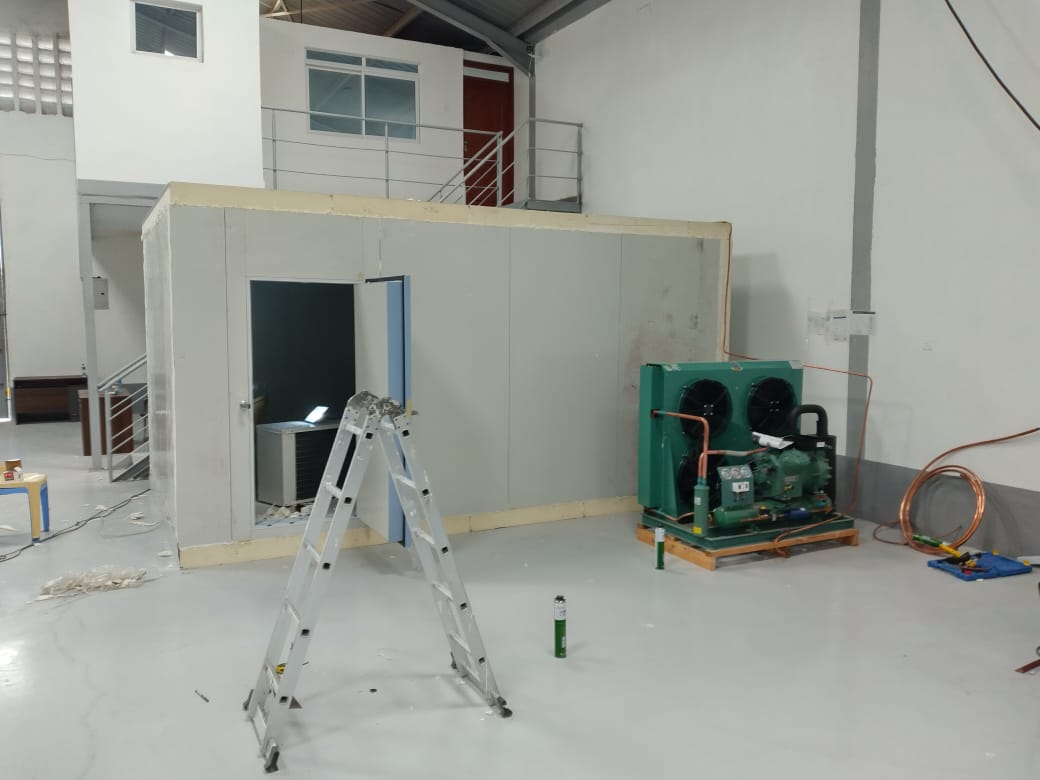Types of Cold Rooms: Exploring Cooling Solutions for Various Needs
Introduction:
Cold rooms play a crucial role in preserving perishable items, ranging from food products to pharmaceuticals. In this comprehensive guide, we delve into the various types of cold rooms, their applications, and the advantages they offer. Whether you’re in the food industry, pharmaceuticals, or any sector requiring controlled temperatures, understanding the options available is essential.
Types of Cold Rooms
Walk-in Cold Rooms
Walk-in cold rooms are versatile, providing ample space for storing perishables. From restaurants to supermarkets, these cold rooms offer a convenient solution for businesses requiring large-scale refrigeration.
Modular Cold Rooms
Modular cold rooms are customizable and scalable, making them ideal for businesses with evolving needs. Their flexibility allows for easy expansion or modification to accommodate changing storage requirements.
Blast Freezers
Blast freezers are designed for rapid cooling, preserving the quality of products by minimizing ice crystal formation. Ideal for the food industry, these cold rooms are essential for quick freezing, maintaining the freshness of items.
Controlled Atmosphere Cold Rooms
Perfect for storing fruits and vegetables, controlled atmosphere cold rooms enable precise control over temperature, humidity, and gas composition. This ensures optimal conditions for extended storage without compromising quality.
Laboratory Cold Rooms
Laboratory cold rooms are specialized units for storing sensitive materials, such as medical samples and research specimens. These cold rooms maintain precise temperature control, crucial for preserving the integrity of scientific materials.
Server Cold Rooms
In the tech industry, server cold rooms are indispensable for maintaining optimal temperatures for data servers. These specialized rooms prevent overheating, ensuring the smooth functioning of critical equipment.
Mobile Cold Rooms
For businesses requiring mobility, mobile cold rooms provide a convenient solution. These units are equipped with cooling systems, making them suitable for events, catering services, and temporary storage needs.
Advantages of Cold Rooms
Energy Efficiency
Cold rooms are designed with energy-efficient features, contributing to cost savings for businesses. Modern technology ensures optimal cooling with minimal power consumption.
Extended Shelf Life
The controlled environment of cold rooms prolongs the shelf life of perishable goods, reducing waste and increasing overall efficiency in the supply chain.
Temperature Control
The ability to precisely control temperatures in cold rooms is vital for industries where specific temperature ranges are required. This feature ensures product quality and safety.
Versatility
The versatility of cold rooms makes them suitable for various industries, from food and pharmaceuticals to technology. Businesses can choose the type of cold room that best fits their specific needs.
FAQs about Types of Cold Rooms
Q: Can I use a walk-in cold room for residential purposes? Certainly! While walk-in cold rooms are commonly used in commercial settings, some homeowners opt for them to accommodate large quantities of groceries or as additional storage for garden produce.
Q: What is the typical lifespan of a cold room? The lifespan of a cold room varies depending on factors such as maintenance, usage, and quality of components. On average, well-maintained cold rooms can last up to 15-20 years.
Q: Are modular cold rooms suitable for small businesses? Absolutely. Modular cold rooms are designed to be scalable, making them a perfect choice for small businesses that may experience growth and increased storage needs over time.
Q: Can a blast freezer be used for chilling beverages quickly? While blast freezers are primarily designed for freezing, they can indeed be used to chill beverages rapidly. However, it’s essential to follow manufacturer guidelines to avoid potential damage.
Q: What security measures are in place for laboratory cold rooms? Laboratory cold rooms often come with advanced security features, including access controls and monitoring systems. These measures help ensure the integrity and safety of stored materials.
Q: Are mobile cold rooms suitable for long-distance transportation? Mobile cold rooms are designed for short-distance transportation, such as local events or catering services. For long-distance transportation, specialized refrigerated vehicles are more appropriate.
Conclusion:
Understanding the diverse types of cold rooms is crucial for businesses seeking efficient and reliable cooling solutions. From walk-in cold rooms to specialized units for laboratories, each type serves unique purposes, contributing to the overall functionality of various industries. Incorporating these cooling solutions not only ensures the preservation of products but also enhances operational efficiency. Embrace the power of cold rooms to elevate your business’s cooling capabilities





